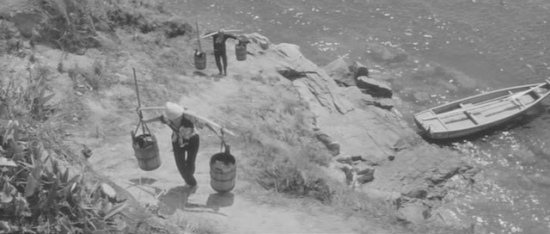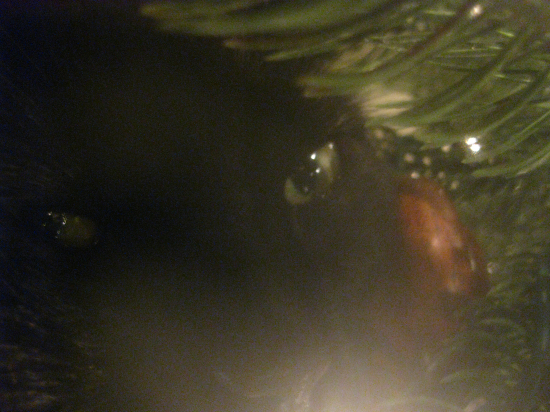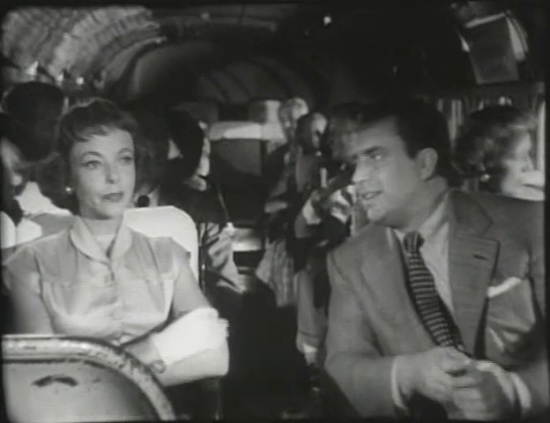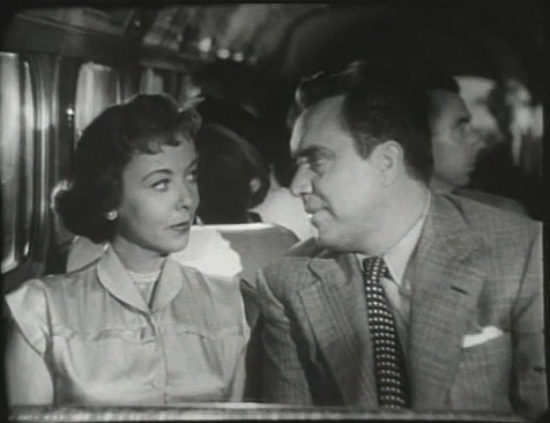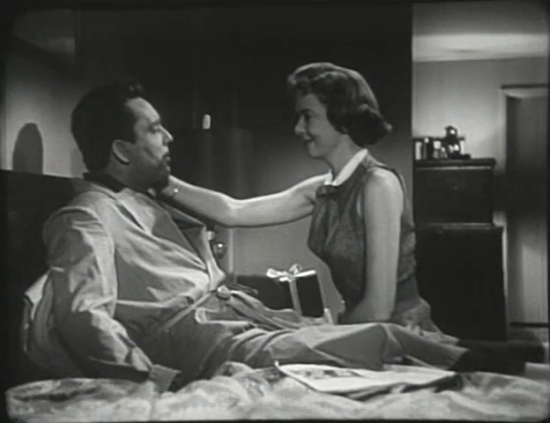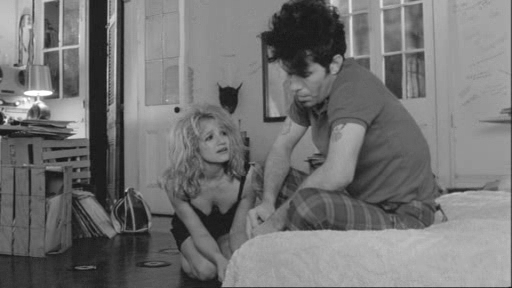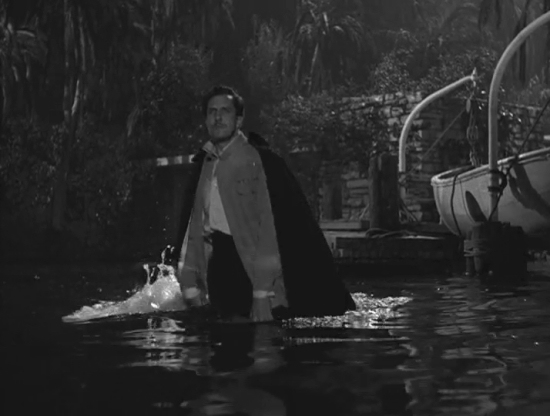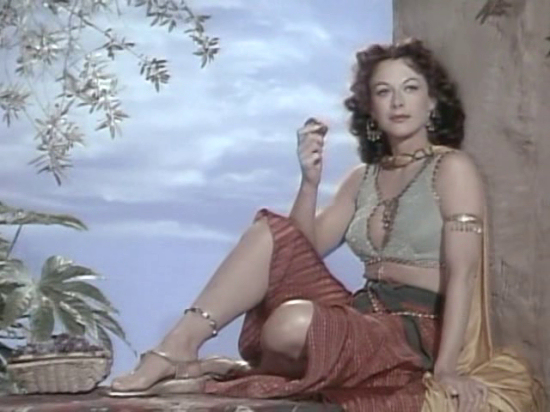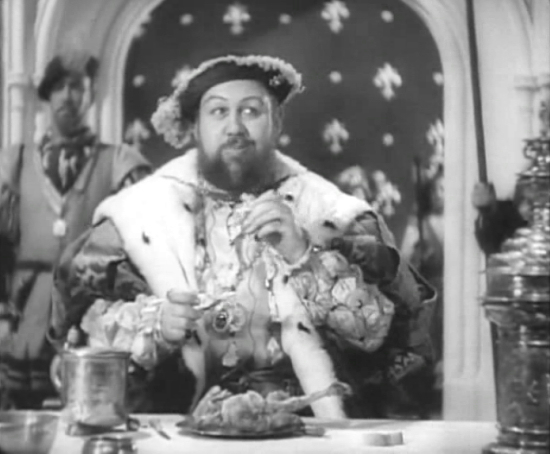To those interested in the craft of writing, it's difficult to explain the difference between "writing for yourself" and a narcissistic self absorption. The former is very important, the latter is almost inevitably detrimental. A good demonstration of both concepts is H.P. Lovecraft's
The Case of Charles Dexter Ward, a novel which I really don't fault Lovecraft for not particularly wanting to publish in his lifetime.
The Wikipedia entry quotes Lovecraft as calling it a "cumbrous, creaking bit of self-conscious antiquarianism." This finely describes the first two thirds of the book, which spends a great deal more time than necessary with the story of Charles Dexter Ward's obsession with his family's history and with pre-Revolutionary America, making him seem an obvious avatar for Lovecraft himself, and his resurrection of his wizard ancestor Joseph Curwen and an attendant attention to ancient tales of the man feel much like wish fulfilment for Lovecraft. Why doesn't this stuff connect with the reader?
Much of Curwen's history is presented in a dry, formal style, like a real historical account and collection of historical researches. Oddly, so is Charles Dexter Ward.
One must look back at Charles Ward's earlier life as at something belonging as much to the past as the antiquities he loved so keenly. In the autumn of 1918, and with a considerable show of zest in the military training of the period, he had begun his junior year at the Moses Brown School, which lies very near his home. The old main building, erected in 1819, had always charmed his youthful antiquarian sense; and the spacious park in which the academy is set appealed to his sharp eye for landscape. His social activities were few; and his hours were spent mainly at home, in rambling walks, in his classes and drills, and in pursuit of antiquarian and genealogical data at the City Hall, the State House, the Public Library, the Athenaeum, the Historical Society, the John Carter Brown and John Hay Libraries of Brown University, and the newly opened Shepley Library in Benefit Street. One may picture him yet as he was in those days; tall, slim, and blond, with studious eyes and a slight droop, dressed somewhat carelessly, and giving a dominant impression of harmless awkwardness rather than attractiveness.
The omniscient third person never quite connects with a POV character. We feel we're studying creatures in a glass and we're never quite sure why. Lovecraft takes it for granted that we're supposed to want to hear all about this history of made up people. The most engaging character of the book actually turns out to be the protagonist, Dr. Willett, about whom we know relatively little. But he becomes a genuine POV character in what is by far the book's best sequence, occurring roughly three fourths in where Lovecraft finally abandons the tone of a history book and allows himself poetic conceits and sensory detail as Dr. Willett explores Curwen's subterranean lair.
If he had expected a flight of steps to some wide gulf of ultimate abomination, Willett was destined to be disappointed; for amidst that foetor and cracked whining he discerned only the brick-faced top of a cylindrical well perhaps a yard and a half in diameter and devoid of any ladder or other means of descent. As the light shone down, the wailing changed suddenly to a series of horrible yelps; in conjunction with which there came again that sound of blind, futile scrambling and slippery thumping. The explorer trembled, unwilling even to imagine what noxious thing might be lurking in that abyss, but in a moment mustered up the courage to peer over the rough-hewn brink; lying at full length and holding the torch downward at arm's length to see what might lie below. For a second he could distinguish nothing but the slimy, moss-grown brick walls sinking illimitably into that half-tangible miasma of murk and foulness and anguished frenzy; and then he saw that something dark was leaping clumsily and frantically up and down at the bottom of the narrow shaft, which must have been from twenty to twenty-five feet below the stone floor where he lay. The torch shook in his hand, but he looked again to see what manner of living creature might be immured there in the darkness of that unnatural well; left starving by young Ward through all the long month since the doctors had taken him away, and clearly only one of a vast number prisoned in the kindred wells whose pierced stone covers so thickly studded the floor of the great vaulted cavern. Whatever the things were, they could not lie down in their cramped spaces; but must have crouched and whined and waited and feebly leaped all those hideous weeks since their master had abandoned them unheeded.
Lovecraft is a master at the sort of horror created from keeping us from seeing something too directly, but this is assisted immensely in its effectiveness by having it transmitted through the reactions of a character, stringing the information in a sequence that makes sense based on what someone's mind would grasp for in the circumstance. It helps trick the brain into mentally engaging with the situation.
After Willett loses his flashlight, the descriptions of him trying to find his way in the darkness are incredibly good.
. . . he staggered to his feet after a time; lamenting bitterly his fright-lost torch and looking wildly about for any gleam of light in the clutching inkiness of the chilly air. Think he would not; but he strained his eyes in every direction for some faint glint or reflection of the bright illumination he had left in the library. After a while he thought he detected a suspicion of a glow infinitely far away, and toward this he crawled in agonised caution on hands and knees amidst the stench and howling, always feeling ahead lest he collide with the numerous great pillars or stumble into the abominable pit he had uncovered.
Once his shaking fingers touched something which he knew must be the steps leading to the hellish altar, and from this spot he recoiled in loathing. At another time he encountered the pierced slab he had removed, and here his caution became almost pitiful. But he did not come upon the dread aperture after all, nor did anything issue from that aperture to detain him. What had been down there made no sound nor stir. Evidently its crunching of the fallen electric torch had not been good for it. Each time Willett's fingers felt a perforated slab he trembled. His passage over it would sometimes increase the groaning below, but generally it would produce no effect at all, since he moved very noiselessly. Several times during his progress the glow ahead diminished perceptibly, and he realised that the various candles and lamps he had left must be expiring one by one. The thought of being lost in utter darkness without matches amidst this underground world of nightmare labyrinths impelled him to rise to his feet and run, which he could safely do now that he had passed the open pit; for he knew that once the light failed, his only hope of rescue and survival would lie in whatever relief party Mr. Ward might send after missing him for a sufficient period. Presently, however, he emerged from the open space into the narrower corridor and definitely located the glow as coming from a door on his right.
There's a lot of subtle alliteration seemingly reflecting the slippery creature Willett had witnessed; "Once his shaking fingers touched something which he knew must be the steps leading to the hellish altar". It all creates something more beautiful than the bulk of the beginning of the book.
So this is what I would say is the difference between writing for yourself and indulging in self-absorption--the former instance is about satisfying yourself in the crafting of something that conveys what's important to you about your dream, and the latter is about buying yourself a birthday cake. It doesn't communicate anything to anyone, not even you, beyond flattery.



